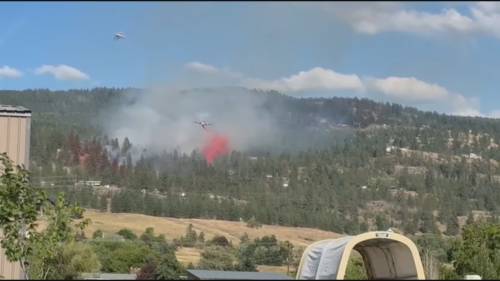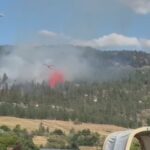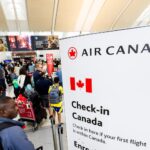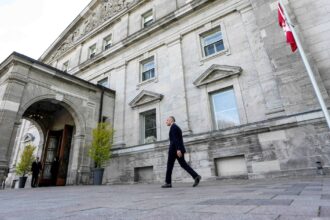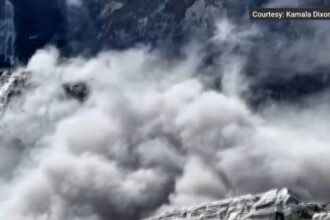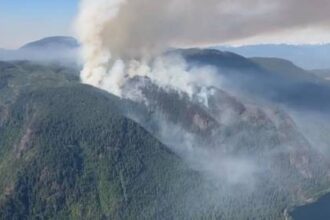The runways fell silent at Kelowna International Airport Tuesday afternoon as a fast-moving wildfire forced officials to suspend all commercial flights, stranding hundreds of travelers during the peak summer travel season. Plumes of dense smoke billowed just kilometers from the terminal, creating a dramatic backdrop as airport staff scrambled to redirect passengers and implement emergency protocols.
“We made the decision to suspend operations at 2:45 p.m. due to the proximity of the wildfire and to ensure the safety of all passengers and staff,” said Sam Samaddar, Airport Director at YLW. “The fire’s unpredictable behavior left us no choice but to take immediate precautionary measures.”
The wildfire, which ignited near Highway 97 just north of the airport, quickly grew to over 20 hectares by late afternoon, fueled by tinder-dry conditions and gusting winds reaching 40 km/h. BC Wildfire Service deployed multiple air tankers and helicopters to battle the blaze, their water drops creating momentary respites in the billowing smoke visible from the airport terminal.
For travelers, the timing couldn’t have been worse. July represents one of the busiest travel periods for the Okanagan region, with YLW typically handling over 60 flights and 7,000 passengers daily during peak summer months. Major carriers including Air Canada, WestJet, and Flair Airlines were forced to cancel or divert at least 25 flights by evening.
“I was literally boarding my flight to Toronto when they pulled everyone back,” said Michelle Coates, who was traveling with her two children. “Now we’re stuck without knowing when we’ll get home. The terminal is packed with stranded passengers.”
Airport officials worked with airlines to accommodate affected travelers, but limited hotel availability in Kelowna—already at near capacity due to summer tourism—complicated efforts. Some passengers reported waiting over three hours to speak with airline representatives about rebooking options.
The economic impact extends beyond the airport itself. The Okanagan’s $2.1 billion tourism industry faces yet another setback after weathering previous wildfire seasons that damaged visitor numbers. Local businesses near the airport reported immediate effects.
“We had to close early today because of the evacuation alerts,” said James Chen, owner of a restaurant located two kilometers from YLW. “This is normally our busiest time of year, but safety comes first. We’ve been through this before with wildfires, but it never gets easier.”
BC Wildfire Service incident commander Katrine Conroy emphasized the challenging conditions. “We’re dealing with extreme fire behavior due to the heat, low humidity, and winds. Our priority is protecting infrastructure and ensuring public safety before addressing full containment.”
The timing of flight resumptions remains uncertain, with airport officials stating operations will restart only when it’s “absolutely safe to do so.” Passengers are being advised to check with their airlines before heading to the airport, as delays and cancellations could persist even after the immediate threat subsides.
This incident marks the third time in five years that YLW has faced operational disruptions due to nearby wildfires, highlighting the growing challenge climate change poses to critical transportation infrastructure in the region. For more updates on this developing situation, visit CO24 Breaking News.
As night fell over Kelowna, the orange glow of the wildfire remained visible from the airport’s observation deck—a stark reminder of nature’s power and the increasing frequency with which climate-driven disasters are disrupting not just travel plans, but the economic and social fabric of communities throughout British Columbia.

